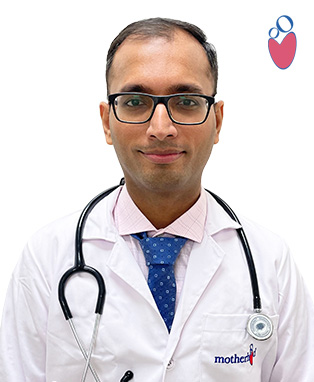
Preterm Twin with Clubfoot Overcomes Odds at Motherhood Hospitals
In a heartwarming story of resilience and medical excellence, Motherhood Hospitals in Kharghar successfully treated a preterm twin baby girl, born at just 29 weeks, with congenital talipes equinovarus (CTE), commonly known as clubfoot. Despite the hurdles of a very premature birth and a congenital foot deformity, the hospital’s specialized neonatal and pediatric care ensured a remarkable outcome for the child.
The journey of Mrs. Rekha (name changed), 33, and her husband, Mr. Bhanu Prakash (name changed), 35, residents of Panvel, Maharashtra, was filled with both joy and anxiety. After 12 years of marriage, the couple’s happiness knew no bounds when they discovered they were expecting their first children—twins. However, at 29 weeks, Rekha unexpectedly went into preterm labor, leading to a premature delivery at a maternity home in Panvel.
“I received an urgent call from the attending obstetrician, informing me that delivery was imminent,” recalled Dr. Anish Pillai, Lead Consultant in Neonatology and Paediatrics at Motherhood Hospital, Kharghar. “Our expert transport team, led by Dr. Amit Ghawade, arrived at the Panvel hospital within 30 minutes, and after stabilizing the newborns, we transported them to our hospital in a specialized ‘NICU on Wheels’ ambulance.”
Both babies were admitted to the Neonatal Intensive Care Unit (NICU) at Motherhood Hospital, requiring non-invasive respiratory support for nearly a week. Early interventions, such as kangaroo mother care and orogastric tube feeding, were initiated to promote bonding and facilitate weight gain. While the twin boy recovered without complications, the baby girl’s clubfoot diagnosis required a different level of care.
Expert Care for Clubfoot
Dr. Chintan Doshi, Pediatric Orthopedician at Motherhood Hospital, took charge of the baby girl’s treatment. Clubfoot affects 1-2 per 1,000 children and can result from a range of factors, including limited space in the womb and developmental abnormalities in bones and muscles. Early intervention is crucial to achieving the best outcomes.
The first plaster cast was applied while the baby was still in the NICU, and the team employed the Ponsetti technique—a gold-standard treatment for clubfoot correction. “We continued serial casting after the baby’s discharge for five weeks, followed by a minor surgical procedure to optimize the outcome,” said Dr. Doshi. “Special shoes were recommended for three months along with physiotherapy to support a full recovery.”
Thanks to this meticulous care, the baby girl will not require any further operations or casting in the future. “Physiotherapy will continue until she turns one year old, and while her feet will appear normal within the first few months, exercises and special shoes are essential until she can walk and run freely,” added Dr. Doshi.
A Mother’s Gratitude
Rekha vividly recalls the moment she was informed of her baby’s clubfoot condition. “I was completely shocked and overwhelmed. The fear of the unknown was paralyzing,” she said. “But Dr. Pillai and Dr. Doshi were incredibly comforting and supportive. They explained everything clearly and reassured us that our baby would receive the best care possible.”
The twins spent 27 days in the NICU, during which the medical team kept a close watch over them, ensuring they met every developmental milestone. “We are eternally grateful to the entire team at Motherhood Hospital. Both our babies are now thriving and healthy,” Rekha shared with relief.
Compassionate Support Amidst Financial Challenges
With the prolonged NICU stay and specialized treatment required for the baby girl’s clubfoot, the family faced immense financial pressure. Recognizing their situation, the medical team at Motherhood Hospitals reached out to the Neonates Foundation of India (NFI) for support. NFI provided generous financial assistance, easing a substantial portion of the medical expenses and lifting a heavy burden off the family’s shoulders.
“Many preterm babies from underprivileged families struggle to access the specialized care they need due to high costs. Our mission is to reduce preventable neonatal deaths and support these vulnerable newborns,” stated an official from NFI. Their timely assistance enabled the twins to receive the high-quality medical care that ultimately transformed their lives.
The success story of the baby girl’s treatment is a testament to the importance of early intervention, specialized care, and compassionate support in overcoming neonatal challenges. Motherhood Hospitals, Kharghar, continues to set new benchmarks in neonatal and pediatric care, offering hope and healing to families during their most challenging times.